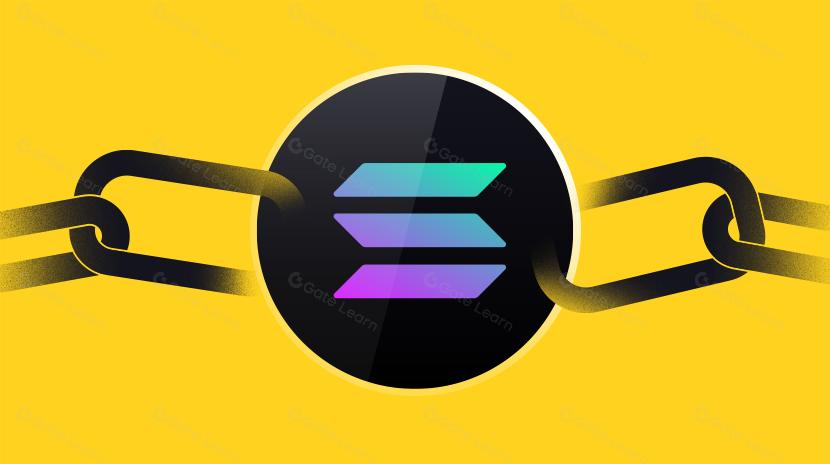Adres

What Is an Address? How Are Addresses and Accounts Related?
An address on the blockchain acts as your unique identifier, similar to a bank account number. It is used to receive and send assets and interact with smart contracts. An account represents your entity on the blockchain, while the address is its public identifier. In Ethereum, both user accounts and contract accounts each have their own distinct address.
Many users confuse addresses with wallets. A wallet functions more like a toolbox, helping you manage private keys and initiate transactions, while an address is simply the public identifier. One wallet can manage multiple addresses, and a single address can be accessed through various wallet tools.
How Are Addresses Generated? What’s the Relationship Between Address, Private Key, and Public Key?
Addresses are derived from public keys, which are themselves generated from private keys. The private key is your master key—known only to you. The public key can be shared publicly, acting like a “doorbell.” The address is a shortened string calculated from the public key.
For Ethereum, the typical process involves generating a public key from a private key, hashing the public key (similar to extracting a fingerprint), then taking the last 20 bytes of the hash and adding a 0x prefix to form the address. Bitcoin also hashes the public key but displays addresses using different encoding methods, resulting in various address types.
Crucially: you can share your address openly, but your private key must be kept offline and secure. Whoever holds the private key has control over the assets associated with that address.
What Are the Features of an Ethereum Address? What Is Address Checksum?
Ethereum addresses typically start with “0x” followed by 40 hexadecimal characters. They are case-insensitive, but the community widely uses the “mixed-case checksum” format (EIP-55) to reduce manual input errors.
A checksum can be thought of as a built-in error prevention marker: the same address can be displayed with different cases, and only the correct case combination signals there are no typos. EIP-55 was adopted around 2017; as of 2025, most EVM-compatible chains follow the same address format and length.
When copying an Ethereum address, it is best to use the copy button or QR code provided by your wallet or exchange rather than typing it manually, to avoid errors in case and characters.
What Are the Types of Bitcoin Addresses? How Do Address Formats Differ?
Bitcoin supports multiple address formats: addresses beginning with “1” are legacy (P2PKH) addresses, those starting with “3” are script (P2SH) addresses, and those starting with “bc1” are Bech32 SegWit addresses. All serve the same purpose—identifying where assets are received—but differ in encoding methods and feature support.
Base58 encoding avoids easily confused characters (like 0, O, I), while Bech32 is a modern encoding with stronger checksums and reduced manual entry errors. The address type you use is typically determined by your wallet or exchange network settings.
When depositing Bitcoin on Gate, you’ll receive an address in the corresponding format for the selected network. Always ensure that your sending network and address format match to avoid cross-network transfers that could result in lost assets.
What Is a Contract Address? How Does Interacting With Contracts Differ?
A contract address is a unique identifier assigned after deploying a smart contract—similar to a “corporate account.” Sending tokens to a contract address and “calling contract functions” are distinct actions: transferring tokens simply credits that address, while calling a function executes contract logic.
For example, authorizing and transferring ERC‑20 tokens usually requires calling contract functions. Sending tokens directly to a contract that lacks receiving logic could mean those tokens are unrecoverable. Before interacting with any contract, always verify its authenticity using official documentation or a block explorer to avoid scams.
How Do You Use Addresses? What Should You Check When Depositing or Withdrawing on Gate?
When depositing or withdrawing on Gate, accuracy across “network, address, and Memo” is essential. Here are some practical tips:
Step 1: Select the correct network. For example, USDT exists on Ethereum (ERC‑20), Bitcoin (Omni), Tron (TRC‑20), etc.—choose the network that matches your external address to prevent cross-chain errors.
Step 2: Check the address format. Ethereum addresses usually start with “0x”, while Bitcoin addresses may start with “1”, “3”, or “bc1”. Use the copy button or QR code to avoid manual entry mistakes.
Step 3: Confirm Memo/Tag. Memo/Tag is an additional note used on networks like XRP, XLM, EOS for proper internal routing at exchanges. Omitting or mis-entering it could prevent funds from being credited automatically.
Step 4: Test with a small amount first. Transfer a small amount to verify network and Memo accuracy before proceeding with larger transactions.
Step 5: Use address whitelisting. Save frequently used withdrawal addresses in Gate’s address book and enable withdrawal whitelisting to restrict transfers only to approved addresses—reducing errors and tampering risks.
Step 6: Verify using a block explorer. Use the official explorer for your network to check transaction records and contract details for the address; only continue after confirming successful test transfers.
Why Are Addresses Network-Specific? Can One Address Be Used Across Chains?
Different blockchains operate as separate systems; addresses are only valid within their respective networks. Even if you have identical address strings across multiple EVM chains (e.g., starting with 0x...), assets are recorded independently in each ledger and do not automatically transfer between them.
Cross-chain transfers require bridges or exchange deposit channels supporting multiple networks. Sending assets from one network to another using the same address usually results in unrecoverable funds. Always confirm “token + network + address” before making any transfer.
What Are Address Risks? How Do You Prevent Address Poisoning or Fake Addresses?
Address poisoning is an increasingly common scam: attackers send a tiny transaction from an address visually similar to yours, hoping you'll copy their address from your transaction history and send future transfers to them by mistake.
Prevention tips:
- Always select named addresses from your address book instead of copying from history.
- Double-check the first 6 and last 4 characters of each address; use block explorers to confirm recipients.
- Beware of clipboard-hijacking malware; avoid copying addresses from untrusted websites or chats.
- Enable withdrawal whitelisting on Gate and set up risk alerts; prefer copying via QR codes or official links whenever possible.
How Do You Tag and Manage Addresses? Are ENS or Other Human-Readable Addresses Useful?
ENS maps memorable names (like “alice.eth”) to Ethereum addresses—essentially nicknaming your address for easier sharing. However, names can be spoofed; what matters is verifying the underlying real address.
When using ENS, check both “forward resolution” (name to address) and “reverse resolution” (address to name) for consistency, and review history or contract activity via block explorers. For daily management, label frequently used addresses clearly in your wallet or Gate’s address book to reduce manual verification efforts.
Key Takeaways About Addresses
Addresses serve as public identifiers on blockchains, derived from private keys and public keys and displayed in formats defined by each network. Ethereum and EVM-based chains use “0x” plus 40 hexadecimal characters; Bitcoin has formats starting with “1”, “3”, or “bc1”. Always verify both contract and personal addresses using official sources.
When depositing or withdrawing on Gate, ensure that “token, network, address, Memo” all match. Prefer managing addresses via address books and whitelists; test small transfers before larger ones. To guard against poisoning or fake addresses, stick to trusted sources, double-check entries on both ends, and confirm through official block explorers. Understanding these principles and following best practices significantly reduces asset risk.
FAQ
What happens if I enter the wrong deposit address on Gate?
If you enter an incorrect address, your funds will typically be sent to that wrong address and are very difficult to recover. Always triple-check your deposit address before submitting—test with a small amount first if possible. If you enter a valid blockchain address that isn’t yours, those funds go to whoever owns that address; they cannot be retrieved through the platform.
Why doesn’t the same address receive tokens across different chains?
Blockchain networks are independent; an identical-looking address format on different chains corresponds to separate accounts. For example, an Ethereum address won’t work on the Bitcoin network. Always ensure your receiving address’s network matches your intended transfer network; otherwise, funds will be lost.
Is it safe to transfer using QR code-scanned addresses?
QR codes can be maliciously replaced. Always verify the first and last few characters of any QR-scanned address or manually copy it instead of scanning directly. On phishing websites or compromised pages, QR codes often point to hacker-controlled addresses.
When should I use ENS or other human-readable addresses?
ENS addresses (like alice.eth) allow you to use memorable names instead of complex alphanumeric addresses for easier cross-chain transfers or social sharing. For typical deposits or withdrawals on Gate, regular users do not need ENS—it's mostly used for Dapp interactions or wallet transfers within the Ethereum ecosystem.
How can I quickly tell if an address is real or fake?
Real blockchain addresses have fixed formats and consistent lengths—for example, Ethereum addresses always start with "0x" and are 42 characters long. Paste any suspicious address into a blockchain explorer like Etherscan for verification; fake addresses will show no transaction history. Never trust "address previews" in links—always confirm via official explorers.
Related Articles

The Future of Cross-Chain Bridges: Full-Chain Interoperability Becomes Inevitable, Liquidity Bridges Will Decline

Solana Need L2s And Appchains?
